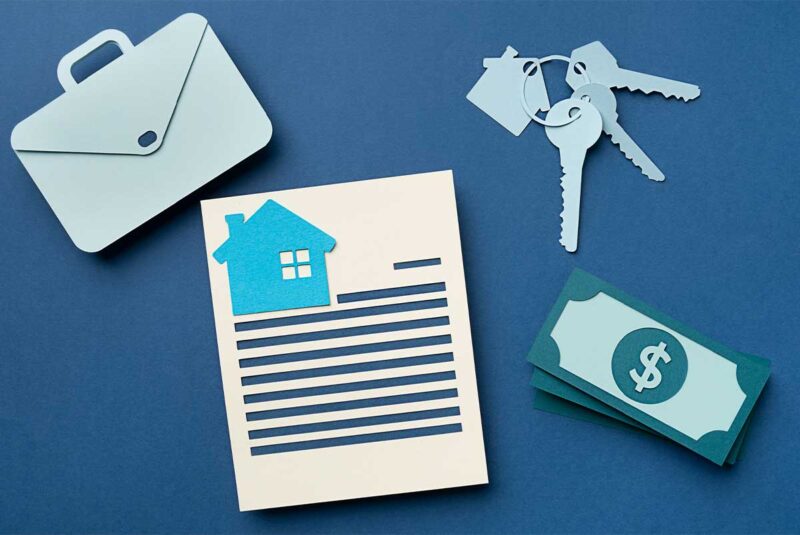Ready To Buy a Home?
Get Approved to Buy a Home
Rocket Mortgage® lets you get to house hunting sooner.
If you’re like most people, you may not fully understand the purpose of an impound account. In short, an “impound account,” also known as an “escrow account,” is a way for your lender to ensure your property taxes and homeowners insurance are paid on time.
The lender is responsible for managing the account, but it’s still a good idea to know how it works.
So let’s look at impound accounts: from what they are and how they work, to whether or not you need one.
What Is an Impound or Escrow Account?
An impound (escrow) account works by setting aside a portion of your regular mortgage payment for property tax and homeowners insurance. When these expenses come due, the lender pays them directly from the account, rather than relying on you to make those payments on time.
Why does your lender do this? While it can help make your life easier as a homeowner, lenders have an ulterior motive for offering this service.
You may already know that if you fail to pay your property taxes, a lien may be placed against your home. This can lead to the forced sale of your home to cover back taxes.
But did you know that a tax lien almost always takes priority over other liens on a property, including your mortgage? This means that if you don’t pay your taxes, the government can sell your house. They would retain all proceeds from the sale, even beyond the amount owed in taxes, leaving other lienholders unpaid.
To minimize the chances of a borrower falling behind on their tax and insurance obligations, many lenders require that their borrowers set up an impound account as a condition of the loan. The lender will manage the account, making sure that the right amount of money is deposited each month to cover the upcoming year’s taxes and insurance.
Are Impound or Escrow Accounts Required?
The honest (but admittedly annoying) answer?
Maybe.
Whether or not an impound account is required is usually determined by the loan type you are using and the amount you put down on your loan.
Many loan programs backed by the government, such as Department of Veterans Affairs (VA) and Federal Housing Administration (FHA) loans, will require impound accounts. Sometimes, the accounts may even be required by law.[1]
If you’re using a conventional loan, the requirements could be laxer. Impound accounts may not be required if you make a down payment of 20% or more. There are also some cases where the lender may waive the impound requirement if the borrower has a good credit score or a history of on-time payments.
Can My Impound Account Run Out of Money?
The goal of an impound account is to always maintain enough money to cover the upcoming year’s property taxes and insurance payments.
Your impound account will usually set aside enough to cover your property taxes and insurance. Insurance premiums are usually issued in 12-month policy periods with an annual payment being due, and property taxes are usually billed once or twice a year.
However, certain situations can throw things off course. Normally your lender will require a monthly escrow payment that covers the projected taxes and insurance. This is usually collected alongside your mortgage payment.
If your insurance company raises rates, or if your property tax bill is higher than anticipated, your account may have to cover a larger expense than projected. In these cases, you may have a deficit between what is in escrow and the cost of your taxes and insurance.
If the balance of your impound account is projected to become deficient the following year, you should get a clear heads up from your loan servicer. They’re required by law to notify you of the deficit at least once during the year if there is a shortage in the account.[2] Most loan servicers will give you at least 30 days to plan and budget for any increase in your monthly mortgage payment.
Escrow Refunds
If there can be escrow deficits, the opposite can happen, too. There are times when there can be a surplus in the account. It can happen for a few reasons: the property taxes or insurance premiums were lower than expected, or the borrower made extra payments into the account.
When this happens, the lender is legally required to issue an escrow refund of any overage in the account within 30 days of identifying it through an escrow analysis.[4]
How Do You Manage Your Impound Account?
While your lender manages your impound account, it’s always a good idea to stay informed about what’s going on with your account.
You can check your impound account balance and transactions by logging into your mortgage account online or contacting your loan servicer. You should also receive regular updates on the status of your account.
Is an Impound Account a Good Idea?
Impound accounts benefit the lender by reducing the risk of default and the borrower by simplifying financial obligations. Your lender benefits by reducing the risk of a forced tax sale leaving the loan unpaid. You benefit from one less thing to worry about and sometimes can even enjoy the added incentive of a reduction of their rate or lower closing fees. Even when an impound account is not required, it can still be a good idea.
The consequences associated with missing tax payments are heavy, so the biggest benefit of an impound account may simply be the peace of mind. We’re not gonna lie, though – it’s always nice to have one less thing on your plate.
PROS of Setting Up an Impound Account👍
Hands-off management minimizes the risk of missed payments.
Some lenders may offer a discount on your mortgage interest rate or closing costs by electing to have an impound account.
It’s much easier to budget when your mortgage payment includes the same amount for taxes and insurance each month.
When you escrow your taxes and insurance, you won’t face large annual payments that can put a dent in your savings account. You’ll also avoid costly penalties and fees associated with overdue taxes and insurance.
CONS of Setting Up an Impound Account👎
Insurance premiums can change, sometimes causing shortages in payments.
Usually done when your loan is originated, you’ll need to make a large deposit upfront to establish the account.
Loan servicers are usually great at managing the account, but the ultimately responsibility for paying taxes and insurance falls to the homeowner. If you receive notifications about issues with your accounts or payments from your local tax authority or insurer, make sure you stay on top of them and contact your lender or mortgage servicer with any questions.
The money in your impound account is technically still yours, but it’s being held by the bank. This means you won’t earn any interest on the money while it sits in escrow.
A Homeowner’s Helper
Buying a home comes with a ton of responsibility, and an impound account is one way to make homeownership a bit simpler. Sometimes impound accounts are required by the lender or state law, but some circumstances may allow you to opt out and self-manage your tax and insurance payments. Now that you understand and can weigh the pros and cons of an impound account, which will it be?
Get approved to buy a home.
Rocket Mortgage® lets you get to house hunting sooner.
The Short Version
- Impound accounts benefit the lender by reducing the risk of default and the borrower by simplifying financial obligations
- An impound (escrow) account works by setting aside a portion of your regular mortgage payment for property tax and homeowners insurance bills when they come due
- Whether or not an impound account is required is usually determined by the loan type you are using and the amount you put down on your loan
Consumer Financial Protection Bureau. “What is an impound or escrow account?” https://www.consumerfinance.gov/ask-cfpb/what-is-an-escrow-or-impound-account-en-140/
Consumer Financial Protection Bureau. “§ 1024.17 Escrow accounts.” https://www.consumerfinance.gov/rules-policy/regulations/1024/17/
Federal Trade Commission. “PART 1024—REAL ESTATE SETTLEMENT PROCEDURES ACT.” https://www.fdic.gov/regulations/laws/rules/6500-2800.html
Consumer Financial Protection Bureau. “§ 1024.17 Escrow accounts.” https://www.consumerfinance.gov/rules-policy/regulations/1024/17/#f-1




